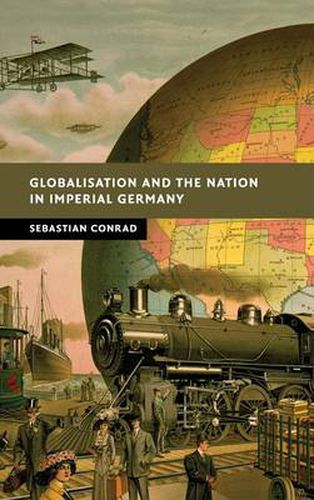Readings Newsletter
Become a Readings Member to make your shopping experience even easier.
Sign in or sign up for free!
You’re not far away from qualifying for FREE standard shipping within Australia
You’ve qualified for FREE standard shipping within Australia
The cart is loading…






The process of globalisation in the late nineteenth century had a profound effect on the trajectories of German nationalism. While the existing literature on the subject has largely remained within the confines of national history, Sebastian Conrad uses the example of mobility and labour migration to show to what extent German nationalism was transformed under the auspices of global integration. Among the effects of cross border circulation were the emergence of diasporic nationalism, the racialisation of the nation, the implementation of new border regimes, and the hegemony of ideological templates that connected nationalist discourse to global geopolitics. Ranging from the African colonies, China and Brazil to the Polish speaking territories in Eastern Europe, this groundbreaking book demonstrates that the dynamics of German nationalism were not only negotiated in the Kaiserreich but also need to be situated in the broader context of globalisation before the First World War.
$9.00 standard shipping within Australia
FREE standard shipping within Australia for orders over $100.00
Express & International shipping calculated at checkout
The process of globalisation in the late nineteenth century had a profound effect on the trajectories of German nationalism. While the existing literature on the subject has largely remained within the confines of national history, Sebastian Conrad uses the example of mobility and labour migration to show to what extent German nationalism was transformed under the auspices of global integration. Among the effects of cross border circulation were the emergence of diasporic nationalism, the racialisation of the nation, the implementation of new border regimes, and the hegemony of ideological templates that connected nationalist discourse to global geopolitics. Ranging from the African colonies, China and Brazil to the Polish speaking territories in Eastern Europe, this groundbreaking book demonstrates that the dynamics of German nationalism were not only negotiated in the Kaiserreich but also need to be situated in the broader context of globalisation before the First World War.